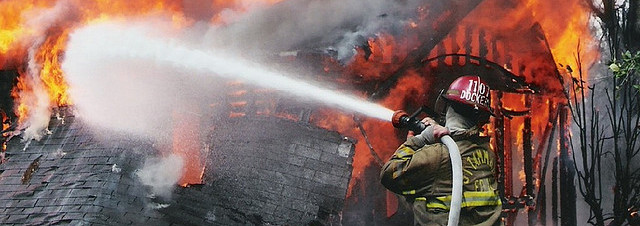
On October 1, 2015, Christopher Harper-Mercer (26) took several firearms to the Umpqua Community College in Roseburg, Oregon and opened fire in what was the latest of America’s mass shootings. In this case there were nine victims killed and several seriously injured, while Harper-Mercer apparently killed himself after exchanging fire with police.
Sadly, while authorities and institutions in the US have become adept at handling this type of situation, it is clearly still a crisis situation for the school in question, the local community and the relevant law enforcement agencies among others.
In this case there were statements by the school administration, local, state and federal authorities as well as from President Obama, all within the first few hours of the incident. One organization that has positioned itself as a leading stakeholder in the issue of access to firearms by private citizens has been completely silent on this situation. The National Rifle Association (NRA) has issued no formal statement on the incident and has maintained a very low social media profile since the shooting occurred.
For an organization that is closely associated with gun rights and opposition to restrictions on the sale and ownership of firearms by private citizens, each mass shooting could conceivably be seen as a crisis. It strengthens the hand of individuals and groups that advocate gun control and brings significant unwanted media attention to the entire issue of gun ownership in America. In this type of situation standard crisis communications practice would be to seek to get in front of the story and try to exert some control over the narrative. So why has the NRA been silent?
Left: The last NRA Tweet of October 1 at 10:44 AM. Right: The only NRA Facebook post of October 1 at 11:04 AM
There are several possible answers to the above question, but I posit that the organization’s silence is a strategic decision, and in this situation the right one. The NRA has considerable public relations skills and resources and thus if it wanted to communicate on this issue it could easily do so. But what would they say that could benefit the NRA, or further its goal of protecting the rights of gun owners? Considering the emotionally and politically charged environment, there is realistically little that the organization could communicate that would not result in harsh media and community blow-back.
Thus, from a strategic communications point of view, the NRA’s decision to stay on the sidelines during the immediate aftermath of the Oregon shooting is perhaps the best option in a bad situation. It helps limit the amount of direct media and political attention focused on the organization in the near term, and allows it to craft its messages and proof points for use at a time and in a forum of its choice.
The lesson is that if there is no message that will benefit an organization and there is no moral or regulatory requirement to communicate, the best option may well be silence.
Top Five Takeaways
- Every crisis is unique and the most appropriate response needs to be determined by the actual situation on the ground
- If the organization is only tangentially involved in the crisis, it has greater flexibility in its responses than if it is a direct party to the crisis
- In an emotionally and politically charged environment e.g. the aftermath of a mass shooting, the organization should proceed with caution when making statements to external audiences
- If the crisis communications team determines that there is no statutory requirement and no reputational upside to communicating during a crisis, senior management should seriously consider not engaging
- Under certain circumstances silence can be an effective strategic response to a crisis


